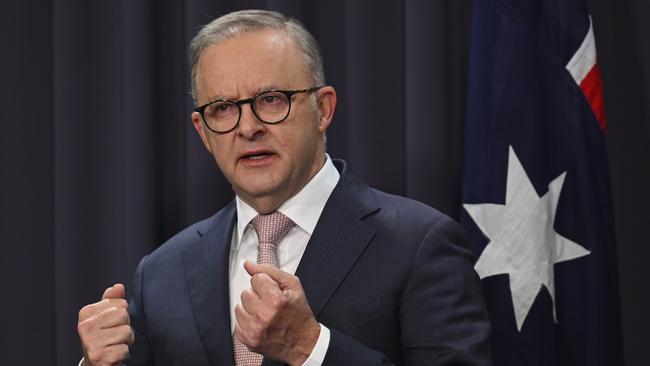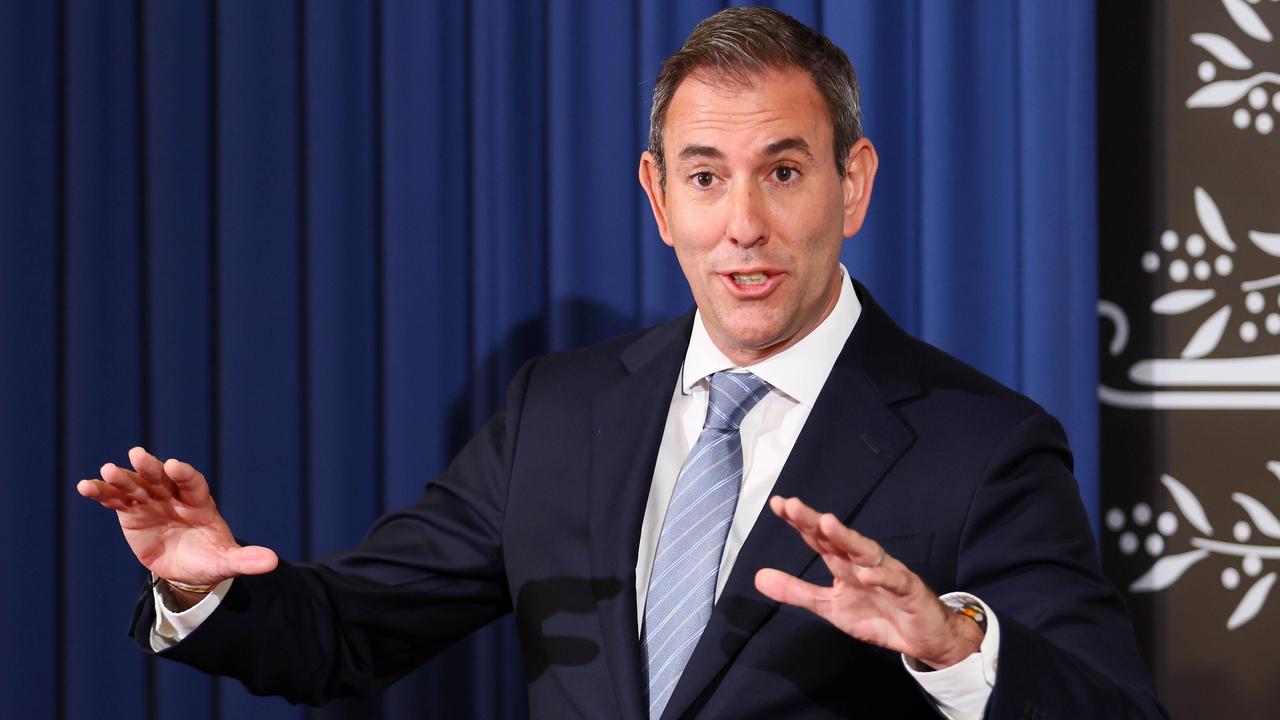Federal budget 2024: Calculate your tax and how much you’ll get back
Some Australian households will be more than $9000 worse off when it comes to tax cuts | Use our interactive calculator
Federal Budget
Don't miss out on the headlines from Federal Budget. Followed categories will be added to My News.
The federal government’s tax pain point has arrived for high-earning Australians, leaving some households more than $9000 worse off than they would have been if Labor had not changed the stage three tax cuts.
However, the fact that the July 1 tax cuts for higher-income earners remain well above what most taxpayers receive in dollar terms means many are keeping quiet about the cuts to their cuts.
The budget papers confirm that a dual-income couple with both partners earning $200,000 or more will see their combined 2024-25 tax cut reduced from $18,150 to $9058 after Labor scrapped the previously legislated stage three tax cuts and replaced them with cuts for every taxpayer.
But only the highest earners are hit hard, with a couple each on $150,000 salaries missing out just $492 a year under Labor’s changes, while a couple on dual $100,000 salaries will be $1608 better off annually.
Behavioural economist and author Phil Slade said many wealthier people were “almost pre-conditioned to think they’re not going to get anything”.
“They compare it to their own expectation, which was zero, so therefore they’re winning,” he said.
Mr Slade said as a whole Australians had not followed the tax cut developments “as closely as they should”.

This meant any tax cut was viewed positively, even if it was less than the previous Coalition government legislated, he said.
“They look at the situation and think ‘I get some money back, so giddy up for me’.”
Peoples’ perception of fairness also played a role, Mr Slade said, and many low and middle income earners have been struggling.
“There’s a lot of working poor – people who are working jobs that are not enough to pay their costs,” he said.
“This will help them survive. One just hopes the cost of living doesn’t rise because of inflation.”
Chartered accountant and Mr Taxman founder Adrian Raftery said Labor’s tax revamp to raise the top marginal tax rate threshold from $180,000 to $190,000 was not enough to adjust for inflation over the years.
He said it was understandable that many high-income earners were keeping quiet about losing half their previously promised tax cuts.
“I think with the tall poppy syndrome we have here in Australia, if a rich person was complaining about paying tax the majority would cut them down to size,” Dr Raftery said.
“I think they have learnt when to pick their battles.
“Personally, I’m disappointed because I was hoping to get more, but in terms of the overall economy and fiscal responsibility it was better to tone back the extent of the tax cuts and better to spread it around more among lower-income earners. It created a better look.”
The revamped tax cuts will potentially drive up inflation faster than the previously legislated cuts because lower-income earners often spend more of their spare money.

However, ANZ senior economist Catherine Birch said she did not think the cuts would add too much to inflation overall.
“Our estimate is that the tax cuts will be equivalent to about two interest rate cuts in 2024-25,” she said.
Ms Birch said recent talk of higher interest rates and higher-for-longer inflation might prompt people to hold on to more of the tax cuts.
“This means there will be less of a boost to economic activity, which could mean that rate cuts potentially come a bit earlier than they might otherwise,” she said.
“We are seeing consumer confidence indicators are still incredibly weak. We are going to be watching confidence really carefully.”
Compared with the original Coalition tax cuts, it was expected that more of the broader tax cuts would be spent, Ms Birch said.
“We know that households on lower income or middle income are more likely to spend more of each additional dollar that they get,” she said.
How federal budget is spent
Where federal budget money comes from
Generous budget threatens to pack a nasty punch in the face
Analysis by Anthony Keane
Six years ago, then treasurer Scott Morrison announced a “seven-year personal tax plan to make personal income tax lower, fairer and simpler”.
From July 1 we get its final instalment, and while the stage three tax cuts certainly lower tax, they are not simpler following Labor’s big tweak, and arguments about their fairness rage on.
Labor halved the previously-legislated tax cuts for the top end of town, but even middle-income earners are effectively behind where they were a couple of years ago.
That’s because the Low and Middle Income Tax offset, which had paid up to $1500 for people earning up to $90,000, was scrapped from last financial year. The $1679 tax cut a worker on $80,000 now gets only just covers the $1500 in LMITO they lost.
The government seems to be playing games with inflation by giving every household a $300 energy bill rebate and further increasing rent assistance. They may technically reduce CPI and potentially bring on interest rate cuts, but also put more money in people’s pockets – which could fuel inflation and rate rises.
Speaking from budget lockup, KPMG chief economist Brendan Rynne described the budget as an “Oprah moment” for Treasurer Jim Chalmers: “you get $300, you get $300, you get $300”.
“If they get it wrong, and the budget is stimulatory, it is going to give a backhander to most households with mortgage interest rates and rents higher than they otherwise would have been,” Dr Rynne said.
He said “just one delayed 0.25 per cent rate cut would add $1500 a year to a typical mortgage’s repayments”.
Read related topics:Federal Budget 2024



